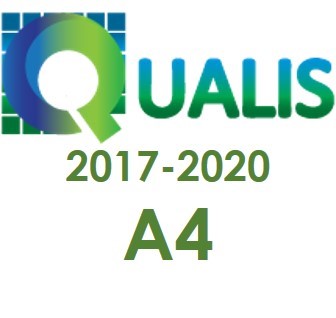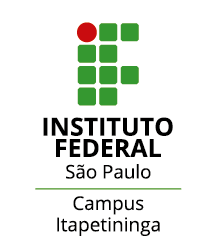Science education for deaf students
possibilities and challenges
Keywords:
Science Teaching. Scientific education. Deaf. Possibilities. Challenges.Abstract
The importance and possibilities of Science education for deaf and hearing students are
indisputable in the national and international literature, since the phenomena studied in this area
of knowledge is a part of daily student lives. Thus, debating them in the classroom through the
application of various methodologies is essential for the formation of student citizenship,
intellectual development and autonomy. However, the national literature presents several
challenges faced in Science education for deaf students. Thus, the aim of the present study is to
identify what the research related to this theme discourses on the possibilities and challenges of
Science education for deaf students. This aims to clarify the following research problem: what are
the theoretical and methodological assumptions of Science education for deaf students? The
discussions carried out herein provide evidence that there is no need to ignore all the research
conducted in the field of Science teaching when it comes to deaf students only because it was
conducted on hearing students. Certain aspects and theoretical references can still be used,
although there are certain deaf education particularities that must be considered. Research should
be conducted to better understand this phenomenon, as well as contribute to efforts to approach
what is recommended in research with what happens in practice, aiming to improve Science
education for all students and make it equitable.
Downloads
References
AIKENHEAD, G. S. Research into STS science education. Educación Química, v. 16, n. 3, p. 384-397, 2005.
ALVES, F. S.; CAMARGO, E. P. O atendimento educacional especializado e o ensino de física para pessoas surdas: uma abordagem qualitativa, Abakós, v. 2, p. 61-74, 2013
ANDERSON, R. D. Reforming Science Teaching: What Research says about Inquiry. Journal of Science Teacher Education, v. 13, n. 1, p. 1-12, 2002.
ANDRADE, G. T. B. Percursos históricos de ensinar Ciências através de atividades investigativas. Revista Ensaio, v. 13, n. 1, p. 121-137, 2011.
BARROW, L. H. A Brief History of Inquiry: From Dewey to Standards. Journal of Science Teacher Education, v. 17, n. 3, p. 265–278, 2006.
BRASIL, MEC. "PCN+ Ensino Médio." Orientações Educacionais Complementares aos Parâmetros Curriculares Nacionais. Brasília: MEC, 1998.
BRASIL. Secretaria de Educação Fundamental. Parâmetros Curriculares nacionais de Ciências Naturais: 1ª a 4ª Séries do Ensino Fundamental. Brasília: MEC/SEF, 1997.
BRITO, L. O.; FIREMAN, E. C. Ensino de ciências por investigação: uma estratégia pedagógica para promoção da alfabetização científica nos primeiros anos do ensino fundamental. Revista Ensaio, v. 18, n. 1, p. 123-146, 2016.
BROWN, S.W. et al. Classroom of the Sea: Problem-based learning for the deaf. Proceedings of the International Conference on Computers in Education (ICCE’02), 2002.
CACHAPUZ, A., et al. A Necessária Renovação do Ensino de Ciências. São Paulo: Cortez, 2005.
CAMPOS, M. C. C.; NIGRO, R. G. Teoria e prática em Ciências na escola: o ensino aprendizagem como investigação: volume único. São Paulo: FTD, 2010.
CAPECCHI, M. C. V. M.; CARVALHO, A. M. P. Argumentação em uma aula de conhecimentos físico com crianças na faixa de oito a dez anos. Investigações em ensino de Ciências, v. 5, n. 3, p. 171-189, 2000.
CARVALHO, A. M. P. et al. Ensino de Ciências por investigação - condições para implementação em sala de aula. São Paulo: Cengage Learning, 2013.
CHASSOT, A. I. Alfabetização científica: uma possibilidade para a inclusão social. Revista Brasileira de Educação, São Paulo, v. 23, n. 22, p. 89-100, 2003.
DEBOER, G. E. Scientific literacy: Another look at its historical and contemporary meanings and its relationship to science education reform. Journal of research in science teaching, v. 37, n. 6, p. 582-601, 2000.
ELEFANT, E. F. Deaf children in an inquiry training program. Volta Review, v. 82, p. 271–279, 1980.
FABRI, F.; SILVEIRA, R. M. C. F. S. Alfabetização científica e tecnológica e o ensino de ciências nos anos iniciais: uma necessidade. Ciência & Ensino, v. 4, n. 1, p. 52-67, 2015.
FOUREZ, G. “Crise no Ensino de Ciências?” Investigações em Ensino de Ciências, v. 8, n. 2, p. 109-123, 2003.
HOFSTEIN, A.; LUNETTA, V. N. The laboratory in science education: foundations for the twentyfirst century. Science Education, v. 88, n. 1, p. 28–54, 2004.
KRASILCHIK, M. Reformas e realidade: o caso do ensino das ciências. São Paulo em Perspectiva, v. 14, n. 1, p. 85-93, 2000.
KRASILCHIK, M. O professor e o currículo de ciências no 1º grau. São Paulo: Atual, 1987.
KRASILCHIK, M. Prática de ensino de biologia. Edusp, 2004.
LABURÚ, C. E.; ARRUDA, S. M.; NARDI, R. Pluralismo metodológico no ensino de ciências. Ciência & Educação, p. 247-260, 2003.
LANG, H. G.; PROPP, G. Science education for hearing-impaired students: State of the art. American Annals of the Deaf, 128, p. 860-869, 1982.
LANG, H. Science for Deaf Students: Looking Into the Next Millennium. In: STEFANICH, G. P.; EGELSTON-DODDY, J. (Ed.). A Futures Agenda: Proceedings of a Working Conference on Science for Persons with Disabilities. Kansas City, Missouri, 1993.
LANG, H.G. Teaching Science. in: MOORES, D.F.; MARTIN, D.S. Deaf Learners: Developments in Curriculum and Instruction. Gallaudet University Press Washington, D.C, 2006.
LANG, H.G.; EGELSTON-DODD, J.; SACHS, M.C. Science Education for Hearing-Impaired Students in the Eighties: Priorities and Projections. American Annals of the Deaf, v. 128, n. 6, p. 801-808, 1983.
LANG, H.G.; STEELY, D. Web-based science instruction for deaf students: What research says to the teacher. Instructional Science, v. 31, no. 4/5, Special Issue: Innovation in Web-based Instruction: Issues of Interaction, Collaboration and Assessment, p. 277-298, 2003.
LORENZETTI, L.; DELIZOICOV, D. Alfabetização Científica no Contexto das Séries Iniciais. Ensaio - Pesquisa em Educação em Ciências, v. 03, n. 1, p. 37-50, 2001.
MACHADO, V. F.; SASSERON, L. H. As perguntas em aulas investigativas de Ciências: a construção teórica de categorias. Revista Brasileira de Pesquisa em Educação em Ciências, v. 12, n. 2, p. 29-44, 2012.
MANGRUBANG, F. R. Preparing Elementary Education Majors to Teach Science Using an Inquiry-Based Approach: The Full Option Science System. American Annals Of The Deaf, v. 149, n. 3, p.290-303, 2004.
MCINTOSH, R. A. et al. Making science accessible to deaf students: The need for science literacy and conceptual teaching. American annals of the deaf, v. 139, n. 5, p. 480-484, 1994.
MINNER, D.D.; LEVY, A. J.; CENTURY, J. Inquiry-Based Science Instruction—What Is It and Does It Matter? Results from a Research Synthesis Years 1984 to 2002. Journal of research in science teaching, v. 47, n. 4, p. 474–496, 2010.
MUNFORD, D.; LIMA, M. E. C. C. E. Ensinar Ciências por investigação: O que estamos de acordo? Ensaio. Pesquisa em Educação em Ciências, v. 9, n. 1, p. 72-89, 2007.
OVIGLI, D. F. B.; BERTUCCI, M. C. S. A formação para o ensino de Ciências Naturais nos currículos de Pedagogia das instituições públicas de ensino superior paulistas. Ciências & Cognição, v. 14, n. 2, p. 194-209, 2009.
PATALANO, F.L. Science Based Education for Students Who Are Deaf and/or Hard of Hearing. Dissertação (Mestrado em Educação) – Arcadia University, 2015.
ROALD, I. Norwegian deaf teachers' reflections on their science education: implications for instruction. Journal of Deaf Studies and Deaf Education, v. 7, n. 1, p. 57-73, 2002.
ROSA, C. W.; PEREZ, C. A. S.; DRUM, C. Ensino de Física nas séries iniciais: concepções da prática docente. Investigações em Ensino de Ciências, v. 12, n.3, p. 357-368, 2007.
SANTANA, R.S.; FRANZOLIN, F. As pesquisas em ensino de ciências por investigação nos anos iniciais: o estado da arte. Ensino em Re-Vista, v.23, n.2, p.504-521, 2016.
SASSERON, L. H.; CARVALHO, A. M. P. Almejando a Alfabetização Científica no Ensino Fundamental: A proposição e a procura de indicadores do processo. Investigações em Ensino de Ciências, v. 13, n. 3, p. 333-352, 2008.
SCHROEDER, C. Uma proposta para inclusão da Física nas Séries Iniciais do Ensino Fundamental. Experiências em Ensino de Ciências, v. 1, n. 1, p. 23-32, 2006.
SPENCER, T. S.; WALKER, T. M. Creating a Love for Science for Elementary Students through Inquiry-based Learning. Journal of Virginia Science Education, v. 4, n. 2, p. 18-25, 2011.
TRIVELATO, S. L. F.; TONIDANDEL, S. M. R. Ensino por investigação: eixos organizadores para sequências de ensino de Biologia. Revista Ensaio, v. 17, n.especial, p. 97-114, 2015.
VIECHENESKI, J. P.; LORENZETTI, L.; CARLETTO, M. R. Desafios e práticas para o ensino de Ciências e alfabetização científica nos Anos Iniciais do Ensino Fundamental. Atos de Pesquisa em Educação, v. 7, n. 3, p. 853-876, 2012.
WANG, Y. Inquiry-based science in instruction and performance literacy for students who are deaf and hard of hearing. American Annals of the Deaf, v. 3, n.156, p. 239-254, 2011.
Downloads
Published
How to Cite
Issue
Section
License

This work is licensed under a Creative Commons Attribution-NonCommercial-ShareAlike 4.0 International License.



 Este trabalho está licenciado sob uma licença
Este trabalho está licenciado sob uma licença 